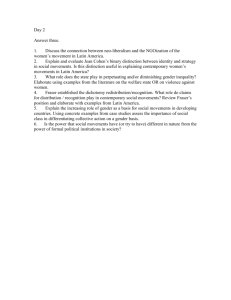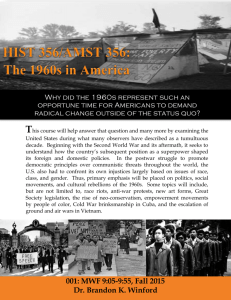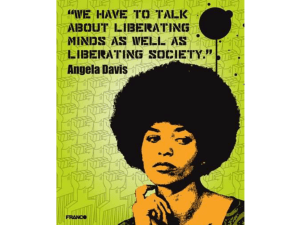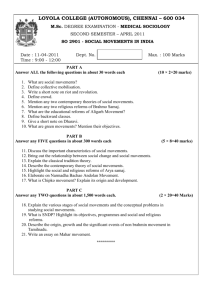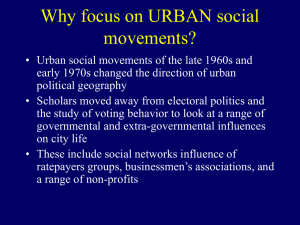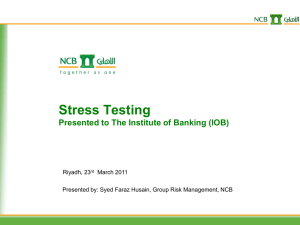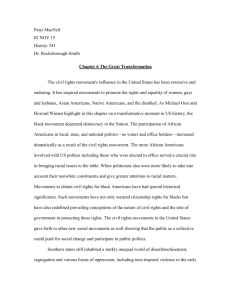edited volume - call for papers
advertisement
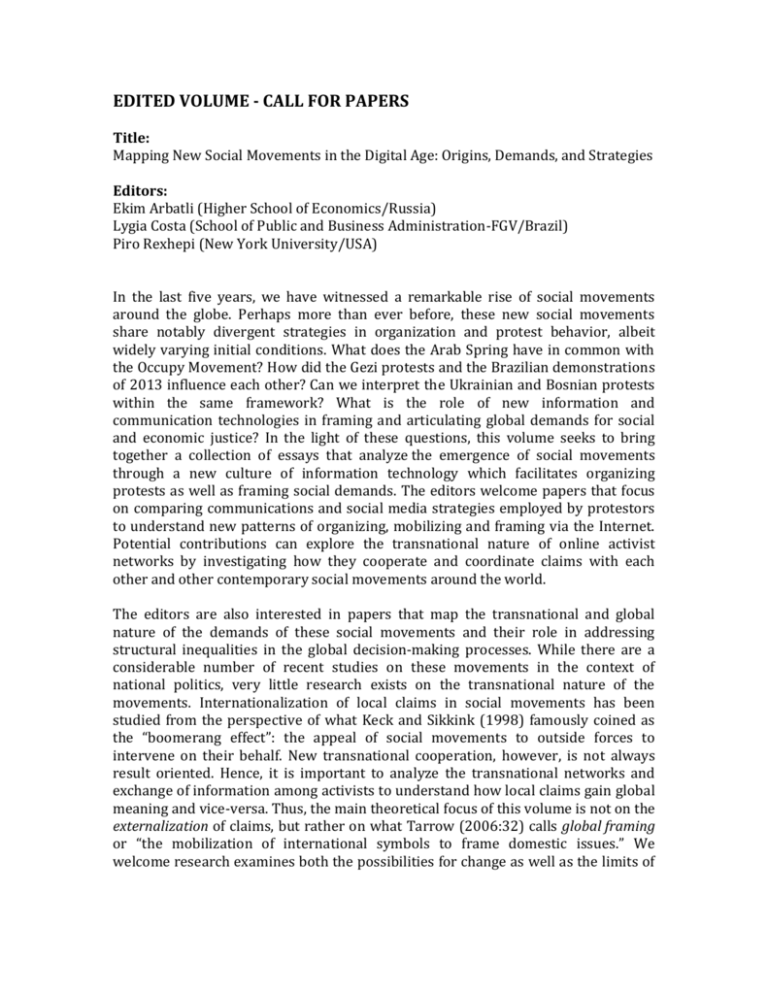
EDITED VOLUME - CALL FOR PAPERS Title: Mapping New Social Movements in the Digital Age: Origins, Demands, and Strategies Editors: Ekim Arbatli (Higher School of Economics/Russia) Lygia Costa (School of Public and Business Administration-FGV/Brazil) Piro Rexhepi (New York University/USA) In the last five years, we have witnessed a remarkable rise of social movements around the globe. Perhaps more than ever before, these new social movements share notably divergent strategies in organization and protest behavior, albeit widely varying initial conditions. What does the Arab Spring have in common with the Occupy Movement? How did the Gezi protests and the Brazilian demonstrations of 2013 influence each other? Can we interpret the Ukrainian and Bosnian protests within the same framework? What is the role of new information and communication technologies in framing and articulating global demands for social and economic justice? In the light of these questions, this volume seeks to bring together a collection of essays that analyze the emergence of social movements through a new culture of information technology which facilitates organizing protests as well as framing social demands. The editors welcome papers that focus on comparing communications and social media strategies employed by protestors to understand new patterns of organizing, mobilizing and framing via the Internet. Potential contributions can explore the transnational nature of online activist networks by investigating how they cooperate and coordinate claims with each other and other contemporary social movements around the world. The editors are also interested in papers that map the transnational and global nature of the demands of these social movements and their role in addressing structural inequalities in the global decision-making processes. While there are a considerable number of recent studies on these movements in the context of national politics, very little research exists on the transnational nature of the movements. Internationalization of local claims in social movements has been studied from the perspective of what Keck and Sikkink (1998) famously coined as the “boomerang effect”: the appeal of social movements to outside forces to intervene on their behalf. New transnational cooperation, however, is not always result oriented. Hence, it is important to analyze the transnational networks and exchange of information among activists to understand how local claims gain global meaning and vice-versa. Thus, the main theoretical focus of this volume is not on the externalization of claims, but rather on what Tarrow (2006:32) calls global framing or “the mobilization of international symbols to frame domestic issues.” We welcome research examines both the possibilities for change as well as the limits of the new social movements; exploring whether recent social movements are a structural effect of neoliberal globalization or sovereign agents of change. We are particularly interested in comparative papers focusing on multiple cases or countries. Single-case studies can also be considered, but comparative research will be given priority. Within this general framework, potential contributors are encouraged to submit papers dealing with the following topics: The origins and demands: Papers that examine the political context in which recent social movements have emerged, including the initial issues that sparked the protests, the first public demonstrations and the identity of participants. Comparative research can address the following questions: What are the similarities and contrasts between different cases? What is being contested and claimed? What are the common demands? Who are the activists? How do they organize and make decisions? Organizing and protests: Papers that explore how recent social movements employed new information and communication technologies to (i) form national alliances, (ii) form transnational alliances, (iii) articulate and negotiate a common framework for the protests among diverse and at times divergent groups. What is the role of new communication technologies in protest organization and diffusion? How do protestors become part of larger transnational dialogue, at what point do they transcend national boundaries and relate their political claims to similar movements abroad? Do new information and communication technologies blur the national social and economic boundaries around which protestors frame their demands? Social movement politics: To what extend do new social movements identify with established political processes? How do they negotiate class, gender, and sexuality? What constitutes membership? How are they organized? Are the new social movements horizontal or is there an informal hierarchy? Who are the movement leaders? Are new social movements “leaderless”? Please submit a short proposal (400-500 words) and a short bio by June 15, 2014. Abstracts should be sent to: socialmovements2014@gmail.com Successful submissions will be notified by July 15, 2014. Deadline for full paper submission (up to 6000 words, including references) is December 10, 2014.

